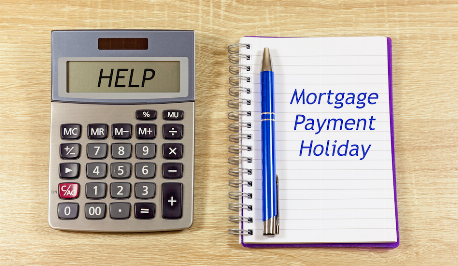In its package to help people who have had their circumstances changed as a result of Covid-19, the Chancellor announced a series of measures to alleviate the financial impact of losing a job or self-employed income including a Mortgage payment holiday.

One of these was the option to take a mortgage payment holiday. But what is it and how does it work? We’ve created a guide that explains it in more detail. The first thing to say is that calling it a holiday isn’t strictly true. The Mortgage Payment Holiday was originally designed for customers who had fallen on hard times and couldn’t afford their monthly mortgage. The Lender would talk through the customer’s circumstances and then agree, if there was a way forward, to suspend the direct debit for three months whilst the customer sorted themselves out. In the background, the lender would add the missed payments, plus the interest payable onto the mortgage and then when the payments started again, the monthly amount would be higher to take into account in the increased in the mortgage. The customer’s credit report would show three missed instalments and therefore the payment holiday would have a negative impact on the customer’s ability to obtain credit in the future certainly at high street prices.
What has changed?
To have a payment holiday under the COVID-19 measures, you don’t need to be financially distressed and the link between your payments or should we say lack of them with a credit referencing agency is broken. This means that there should be no impact on your credit score if you choose to take a holiday. Instead, your mortgage payments after the 3-month holiday will go up to make sure you repay the mortgage amount plus any interest in full.
A word of warning
If you are coming to the end of a fixed rate or other such mortgage deal, a time when your mortgage would normally drop back on to a higher rate of interest, then normally your lender would offer you another deal to encourage to keep your mortgage with them. This is sometimes called a rate switch or product transfer and is normally a similar rate of interest to what you would be have been paying under your current deal. However, some lenders are not in a position to offer the new lower rate if you are currently taking a payment holiday. You could attract a higher rate of interest on your outstanding loan which is then added to your mortgage and not be able to do anything about it. So, when it comes to your payment holiday, timing is everything. Of course, if you choose to take a payment holiday and then cancel your direct debit you run the risk of defaulting on your mortgage which is a risk that could damage your ability to obtain a competitively priced deal in the future.
Talk to an expert
Taking a payment holiday is a decision which should not be taken lightly, if the implications are not understood then over time it could end up costing more money than it looked to save in the first place. Talk to us and we can help you understand what a payment holiday means for you and when would be the right time. And, if it’s something you still want to do, how to go about requesting a suspension of your mortgage payments from your current lender – each has their own way of doing things and different turnaround times. So, the message is simple, act if you need to, make sure your take expert advice first, and let us help today so you have the right result every time.
For more details go to Brighton Mortgage Broker – The Finance House
https://www.fca.org.uk/consumers/mortgages-coronavirus-consumers